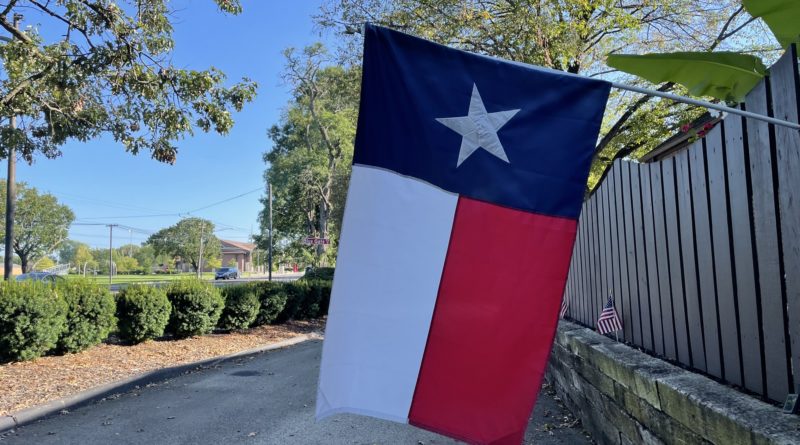US Department of Justice sues Texas over abortion bill
The DOJ filed the lawsuit eight days after the Texas bill went into effect. Photo of the Texas flag courtesy of Ren Sikes.
Lucinda Judd | Staff Writer
The U.S. Department of Justice (DOJ) sued the state of Texas Thursday in response to the passage of a restrictive abortion bill.
The DOJ filed the suit eight days after the Senate Bill No. 8 went into effect. The bill effectively prohibits all abortions in the state of Texas by banning them past six weeks, often referred to as a heartbeat bill. Several states aross the country, including Ohio, have passed similar legislation in recent years.
What makes S.B. 8 different is that it relies on ordinary citizens to report those who administered or helped in the procedure, not on the executive branch (read more about the bill here).
The suit, announced by Attorney General Merick Garland, said that “Texas enacted S.B. 8 in open defiance of the Constitution.”
The bill is in direct opposition to the precedent set by Roe v. Wade and enforced in Planned Parenthood v. Casey which settles a woman’s rights to privacy of her own choice and the right to terminate a pregnancy before the viability of the fetus. Planned Parenthood v. Casey states that “a State may not prohibit any woman from making the ultimate decision to terminate her pregnancy before viability.”
“The Act is clearly unconstitutional under long-standing Supreme Court precedent,” Garland said in a press release. “The United States has the authority and responsibility to ensure that no state can deprive individuals of their constitutional rights through a legislative scheme specifically designed to prevent the vindication of those rights.”
The U.S. in their suit argues S.B. 8 is unconstitutional but has subverted the laws and constitutionality by deputizing citizens, making it more difficult to challenge in court without there being a clear target for such a lawsuit.
The bill also does not make exceptions in cases of rape or incest, which are exceptions in federal law, and effectively prohibits federal agencies from carrying out such responsibilities in Texas, according to the department.
Where S.B. 8 was designed with the idea of challenging Roe v. Wade in mind, this case may be designed to prevent or slow other states from enacting similar bills. The case is expected to be settled in the Supreme Court because of the magnitude of such a decision and because of the intricacies of the bill itself.
Read the full lawsuit here contributed by NPR Politics.
For more local & U.S. news like Flyer News on Facebook and follow us on Twitter (@FlyerNews) and Instagram (@flyernews).

